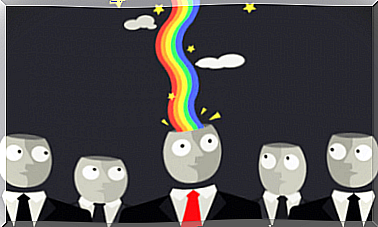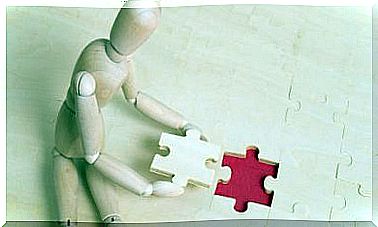How Do You Know When To Trust Your Intuition?

The hustle and bustle of everyday life can make it difficult to carry out any kind of spiritual guidance. When we plan everything we are going to do during the day and we put ourselves on the path of what is marked, it is difficult to listen to intuition when it speaks to us.
For Plato, intuition was the highest function of intelligence, a way of obtaining knowledge that is not achieved through observation, experience, inference, or reason. But what exactly is intuition and how can we know when to trust it? The Royal Spanish Academy (RAE) defines the term intuition as ‘the ability to know, understand or perceive something clearly and immediately, without the intervention of reason’.
And perhaps the best way to start working on our intuition is by asking ourselves two questions: Am I happy? Am I satisfied? Just two of the endless questions that intuition can help us investigate, then make the necessary changes and respond to a sincere and clear, yes! to both.
The first psychological study of intuition dates back to that of the Swiss psychiatrist Carl Jung, who proposed the dimension of intuition to personality. He argued that people with this resource are more likely to let their own thoughts dominate their experience, rather than take a “bottom-up” approach to life, in which data drives their decisions. Thus, they let their own thoughts and feelings take over, using a more “top-down” approach.

Where does intuition live in our brain?
As a team of experts from the University of Iowa pointed out in an investigation, the so-called “axis of intuition” of the brain is the prefrontal cortex, or, expressed in a technical way, the so-called vmPFC. And the truth is that there are many cultural representations that have accurately expressed where intuition is located.
For example, in the X-Men comics and movies, how did Professor X summon his psychic powers? He put his fingers on his temples and closed his eyes. Then, from the center of his forehead, energy waves shone in all directions. That axis of intuition is precisely there, in the very center of the forehead.
The study mentions that being highly intelligent is the key to success. However, in many moments this premise is not fulfilled, since people with even a very high IQ or some damage to their intuitive axis also tend to experience problems or blockages in decision-making.
Dismissing intuition as a useful instrument, especially when the amount of information is so large that it is impossible to process it in an analytical and conscious way, is to give up the best tool we have for these situations. Without it, it seems that we become more gullible, being more vulnerable to publicity and showing a greater difficulty in learning from mistakes, as they argue in the study.
Meditation as the path to true intuition
Learning to trust our intuition is definitely a practice, and it takes commitment and dedication just like building any new habit. But the process is easier than we think, and it is also very rewarding, since intuition is a kind of emotional conjecture or foreboding, which we can sharpen with the help of some simple techniques.
For Allan Wallace, Tibetan Buddhist author of the book The Science of the Mind : When Science and Spirituality meet, we can develop our intuition, relying on meditation, a fundamental technique that helps us focus and calm the mind, at the same time that we eliminate the “contaminants” or residual thoughts that hinder the original intuitive faculty.

What role does meditation play?
Meditation is nothing more than a training for the mind that offers us greater emotional freedom, connecting us with the environment and opening ourselves to our own experience. A technique that allows us to relax, to enter a state of greater mental clarity and, therefore, makes us more decisive.
In another report, neuropsychologists at Wake Forest University concluded that the meditators participating in the study significantly increased their brain activity or, technically speaking, the interconnectivity of the prefrontal cortex, the region of the brain responsible for controlling the brain. behavior and decision making. So, for those of us who want to make decisions with precision, what does this mean?
These results showed how meditation directly links us to our ultra-powerful, but elusive, sense of inner knowledge and magnify it to achieve a life with better financial options, quality relationships, work situation or even health. So if meditators often find success in everything they do, so can we.









